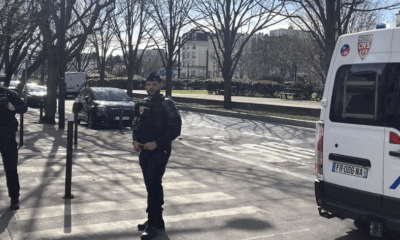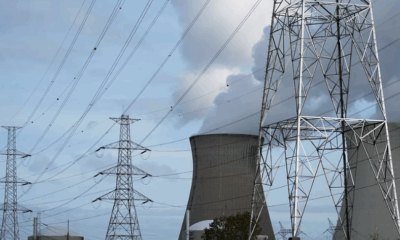News
Seven Family Members Killed in Gaza Airstrike as Blinken Pushes for Ceasefire in Israel
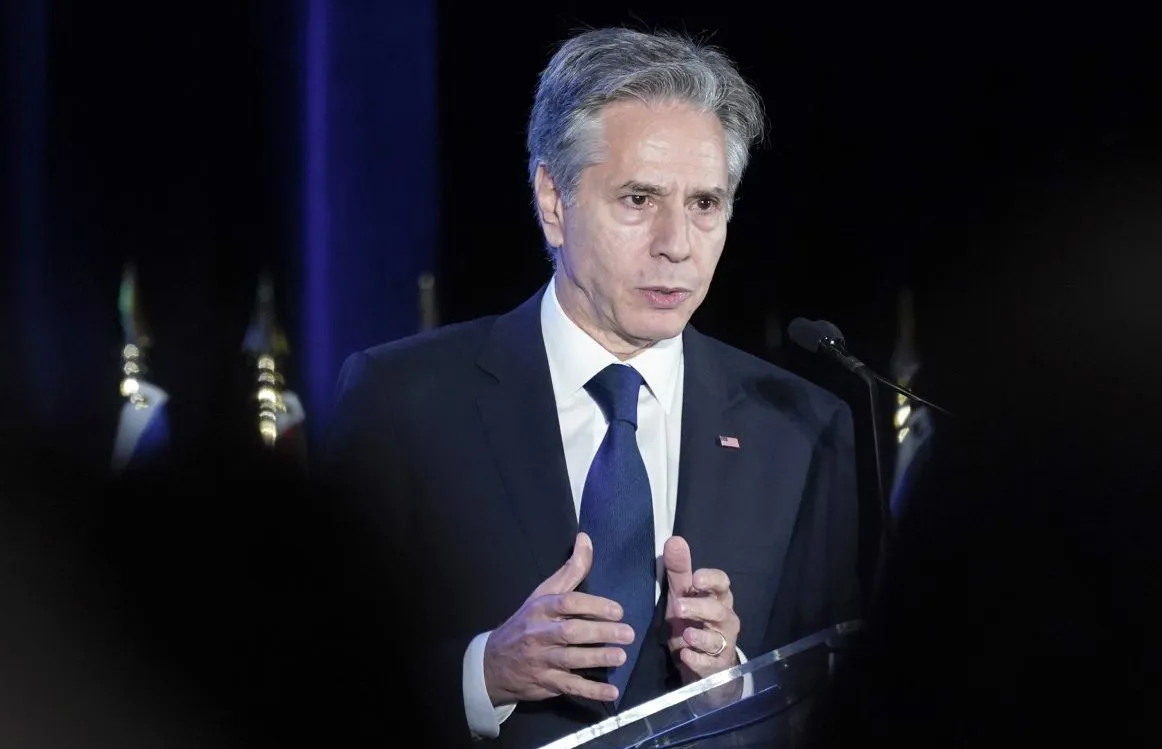
Seven members of the same family, including six children, were killed in an Israeli airstrike in central Gaza on Sunday, according to medical officials. The tragic incident occurred as U.S. Secretary of State Antony Blinken arrived in Israel to push for a ceasefire and a potential hostage deal amid the ongoing conflict.
The airstrike targeted a home in Deir al-Balah, resulting in the deaths of the children and their mother. The children’s father was injured in the attack, according to a spokesperson from Al-Aqsa Hospital. Muhammad Awad Khattab, the children’s grandfather, expressed his devastation, telling CNN, “They were taken by surprise when a missile hit them and completely destroyed their apartment.” He questioned the justification for the attack, asking, “What did they do to deserve this? What resistance did they have?”
This latest strike follows a similar incident just a day earlier, where an Israeli airstrike in the al-Zawayda area of Deir al-Balah killed at least 15 people from the same family, including nine children, according to Gaza Civil Defense.
In a statement on Sunday, the Israeli military confirmed ongoing operations in Khan Yunis and Deir al-Balah, stating that they had struck “targets in the area from which the launches were fired” toward Nirim on Friday, and destroyed launchers in Khan Yunis.
The conflict in Gaza has seen Israel issue numerous evacuation orders, further restricting the humanitarian zone in the region. According to the United Nations, more than 80% of the Gaza Strip has been subjected to these orders since October, severely limiting the local population’s access to essential services and shelter.
Since the escalation of violence following the Hamas attacks on October 7, Israel’s military campaign in Gaza has resulted in the deaths of more than 40,000 people and widespread destruction. The situation has been further exacerbated by the recent detection of the first case of polio in Gaza in 25 years.
Amid these developments, Secretary of State Blinken is engaged in urgent diplomatic efforts to finalize a ceasefire and hostage deal. A new ceasefire plan, drafted by the U.S., Qatar, and Egypt, was presented on Friday following intense negotiations in Doha. Blinken is scheduled to meet with Israeli Prime Minister Benjamin Netanyahu and other senior officials on Monday to push for an agreement.
While U.S. officials, including President Joe Biden, have expressed optimism about the prospects of a ceasefire, Hamas has dismissed the progress, with a senior official from the group telling the BBC that mediators were “selling illusions.”
The Israeli Prime Minister’s Office has indicated cautious optimism about reaching a deal, stating on Saturday that there is “hope that the heavy pressure” on Hamas from the U.S. and other mediators will lead to a breakthrough in negotiations.
News
Thousands Protest in Bulgaria Against Euro Adoption, Demand Referendum on Currency Change

Thousands of Bulgarians rallied across the country on Saturday to protest the government’s plans to adopt the euro and replace the national currency, the Bulgarian lev. Demonstrators called for a national referendum on the issue, warning that eurozone membership could lead to higher prices and the loss of economic sovereignty.
The protests, organized by the ultranationalist Revival Party and several non-governmental organizations, took place in the capital Sofia and multiple other cities. Demonstrations began around midday and drew large crowds voicing opposition to the government’s euro adoption agenda.
“Bulgaria must preserve its currency and its freedom,” said Revival Party leader Kostadin Kostadinov during the Sofia protest. “We do not want the Bulgarian lev to be destroyed. The people want a referendum, and the government must respect that will.”
The protests come amid renewed efforts by Bulgaria’s newly formed government to prioritize eurozone membership. The administration, which took office last month, has named entry into the euro area as a central goal of its economic policy.
Opposition groups argue that the government is moving too quickly and without sufficient public consultation. Many fear that joining the eurozone will lead to inflation, rising costs of living, and diminished control over national monetary policy.
Bulgarian President Rumen Radev recently submitted a formal request to the National Assembly to hold a referendum on the issue. Though the proposal has yet to be debated, it reflects growing pressure from both citizens and opposition parties for a direct vote on the country’s euro ambitions.
In 2024, the European Central Bank ruled that Bulgaria did not yet meet the necessary convergence criteria to join the eurozone, primarily due to its high inflation rate. Nonetheless, the government continues to press forward with preparatory steps.
Bulgaria is one of seven European Union member states that have not adopted the euro. Alongside the Czech Republic, Denmark, Hungary, Poland, Romania, and Sweden, it remains outside the currency union. All except Denmark — which has a formal opt-out — are obligated to join once they fulfill the economic and legal requirements.
As political tensions rise and public opinion remains divided, the future of Bulgaria’s currency hangs in the balance — with growing calls for the people to have the final say.
News
France to Enforce Smoking Ban in Child-Friendly Outdoor Spaces from July 1
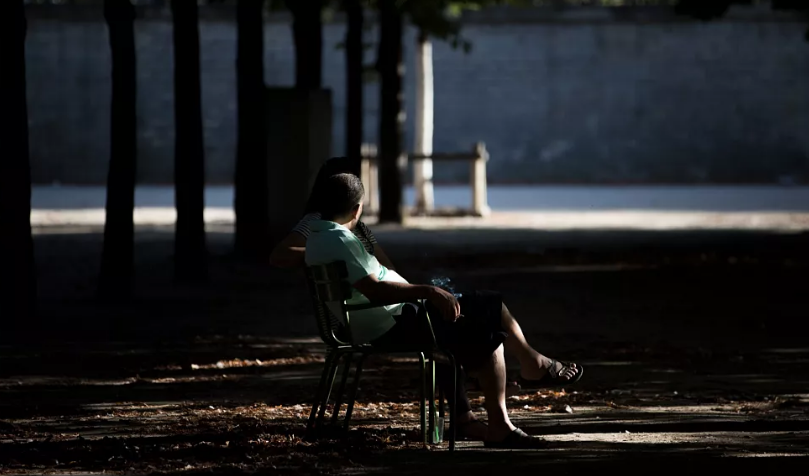
France will implement a new smoking ban in outdoor public spaces frequented by children starting July 1, Health Minister Catherine Vautrin announced on Thursday. The measure is part of the government’s broader National Tobacco Control Programme, which was first introduced in November 2023 to curb tobacco use and reduce smoking-related deaths.
The new regulation prohibits smoking in areas such as public parks, beaches, playgrounds, sports facilities, bus shelters, and the vicinity of schools. Offenders could face a €135 fine for violating the ban. While the restriction does not currently extend to café and bar terraces, Vautrin did not dismiss the possibility of future limitations in those areas.
“Wherever there are children, smoking must disappear,” Vautrin told Ouest France, emphasizing that the aim is to create “a smoke-free generation.”
Although the ban targets traditional cigarette use, electronic cigarettes will still be allowed in these spaces for now. However, the French government plans to tighten regulations on e-cigarettes by mid-2026, including lowering permitted nicotine levels and limiting the variety of available flavours.
The detailed scope of the law is still under review by France’s Council of State (Conseil d’État), the top advisory body responsible for vetting proposed regulations. Vautrin said the government would rely on local officials to apply the rules in a practical and effective manner.
The new smoking restrictions are being rolled out amid strong public support. According to a recent survey conducted by the cancer prevention group La Ligue contre le cancer, 79% of respondents supported the ban in child-friendly outdoor spaces, and 83% were in favour of extending similar restrictions to e-cigarettes.
Each year, smoking claims approximately 75,000 lives in France. The government has identified tobacco control as a public health priority and, in 2023, outlined 26 measures to address the issue. These include increasing tobacco prices, mandating plain packaging, and restricting access to vaping products.
France’s move follows a similar announcement by Spain, which plans to ban smoking in various public areas such as restaurant terraces, university campuses, work vehicles, and outdoor sporting events. Both countries are taking firmer steps toward reducing tobacco-related harm and promoting healthier public environments.
News
Cyprus Unveils Voluntary Repatriation Scheme for Syrian Asylum Seekers
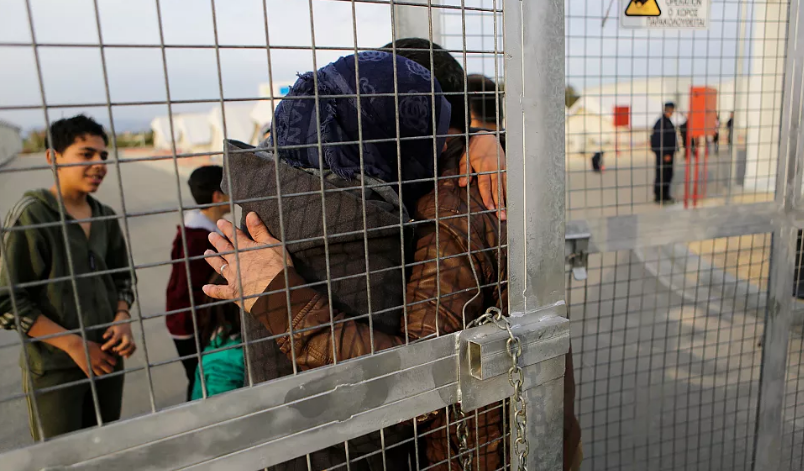
The Cypriot government has announced a new voluntary repatriation programme aimed at encouraging Syrian asylum seekers to return to their homeland with financial support, while allowing one family member to remain in Cyprus temporarily for work.
Deputy Minister for Migration Nicholas Ioannides unveiled the scheme this week, stating that eligible Syrians who withdraw their asylum applications or renounce their international protection status by 31 December 2024 will qualify for the programme.
Under the plan, families opting to return to Syria will receive a one-time payment of €2,000 for one adult and an additional €1,000 per child. Childless couples are also eligible. Applications will be accepted from 2 June to 31 August.
To ease economic concerns about reintegration in Syria, the main breadwinner in each family — either the father or mother — will be granted a special residency and work permit in Cyprus. The permit will allow them to stay and work on the island for a minimum of two years, and up to three years. Holders of this permit will also be able to travel freely between Cyprus and Syria during this period.
“This new programme is a targeted, humanitarian, and realistic policy that bolsters Syria’s post-war transition to normality,” Ioannides said. He noted that many Syrians have expressed interest in returning home but are hesitant due to uncertainty about employment opportunities in Syria.
The head of Cyprus’ Asylum Service, Andreas Georgiades, said the initiative aims to provide returning families with some financial stability during their transition. Syrians currently represent the largest group of asylum seekers in Cyprus, with 4,226 applications filed in 2023—nearly ten times more than any other nationality.
Ioannides also cited the 2009 search and rescue agreement between Cyprus and Syria, which he said permits the return of Syrian migrants arriving by sea. He confirmed that two boats carrying 30 migrants each were recently turned back in accordance with this agreement.
Cyprus has come under criticism from the UN refugee agency and the Council of Europe over alleged pushbacks of asylum seekers, claims which the Cypriot government firmly denies.
Officials say the new repatriation scheme is designed to provide a humane and structured solution to Cyprus’ growing migration pressures while supporting post-conflict rebuilding efforts in Syria.
-

 Business1 year ago
Business1 year agoSaudi Arabia’s Model for Sustainable Aviation Practices
-

 Business1 year ago
Business1 year agoRecent Developments in Small Business Taxes
-

 Politics1 year ago
Politics1 year agoWho was Ebrahim Raisi and his status in Iranian Politics?
-

 Business11 months ago
Business11 months agoCarrectly: Revolutionizing Car Care in Chicago
-

 Business11 months ago
Business11 months agoSaudi Arabia: Foreign Direct Investment Rises by 5.6% in Q1
-

 Technology1 year ago
Technology1 year agoComparing Apple Vision Pro and Meta Quest 3
-

 Politics1 year ago
Politics1 year agoIndonesia and Malaysia Call for Israel’s Compliance with ICJ Ruling on Gaza Offensive
-

 Sports10 months ago
Sports10 months agoKeely Hodgkinson Wins Britain’s First Athletics Gold at Paris Olympics in 800m







